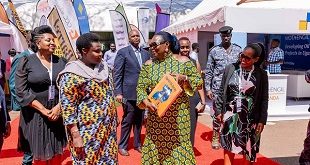Persuade the voters
An interesting academic position on this is that whether they run separately or field a joint candidate, opposition candidates and parties need to persuade the electorate that they are a better alternative to the incumbent.
Part of the problem appears to be what happened in 2011 and 2016 when opposition politicians that proposed to rally behind one candidate pledged to win together but did not show voters a plan of how they would govern together.
Even at party level, where recommendations are made to voters to strategically choose a candidate from another party but the strategy does not include having shared campaign manifestoes, a joint candidate fails.
Instead, what is seen in attempts at alliances in 2011 and 2016 was a strategy of the larger formations seeking to increase their base by co-opting smaller parties. In 2011, it was the UPC under Olara Otunu which sought to get the backing of the rest, including FDC.
In 2016 TDA, Besigye and Mbabazi each sought to woo the smaller DP, SDA and others to their side. Both attempts failed. If in 2021, Bobi Wine, Besigye, and Muntu seek to dominate the other, the effort will fail.
But does anyone believe that Bobi Wine could end up with 40% of the vote, for example, and Besigye 1%, Mugisha Muntu1%, and any others 2%?
If the answer is no, what is likely to be the process and result of the 2021 presidential election race?
Nicole Beardsworth, a South African political analyst and academic researcher on Uganda, Zambia and Zimbabwe, has written extensively on pre-election alliances in Uganda. Soon after the 2016 election, she wrote an interesting article on the debate titled “Uganda: The opposition’s missed opportunity in parliamentary and local elections.”
In it, Beardsworth writes that The Democratic Alliance (TDA), a coalition of seven opposition parties and two pressure groups, hoped that the combined clout of Mbabazi and Besigye could truly challenge Museveni but ego and distrust saw Mbabazi and Besigye deciding to run on separate platforms.
In another article: ‘Why do opposition coalitions succeed or fail?’, Beardsworth writes about Senegal, Liberia, Madagascar, Malawi, Mali, Mauritius, Nigeria, Gambia, and Kenya where opposition parties joined forces to defeat the incumbent president and ended years of one-party dominance.
Before their win in 2002, Kenya’s opposition parties had in 1992 and 1997 separately won a cumulative 60% of the vote but lost to the incumbent who individually won more votes than any party. But an opposition coalition lost in Zimbabwe.
Beardsworth asks: Why do coalitions sometimes become more than the sum of their parts and generate a huge surge of support? Why do they often fragment and collapse?
She quotes political scientist Nicolas Van de Walle’s view that “opposition coalitions only work when they appear capable of winning and thus prompt members of the ruling party to defect. These defectors not only bolster the ranks of the opposition, but can bring supporters with them and sway undecided voters.”
But, she says, it can be difficult to encourage members of the ruling party to cross the aisle and when they do, it can be tough to persuade opposition supporters to vote for someone who was, until recently, part of the government. According to her, that is a problem FDC faces.
She argues that to form a successful coalition, opposition parties need to develop very strategic decision-making, reduce uncertainty and build trust. They should also focus more on intra- and inter-party dynamics and competition over shared electoral constituencies.
She cites how, in 2016, the FDC faced a dilemma when the opposition alliance it was part of voted for the recently-expelled former Prime Minister Amama Mbabazi to be its flag-bearer. The FDC decided to leave the coalition.
But Beardsworth argues elsewhere that TDA was arguably first and foremost an anti-Museveni movement, meaning that it was always likely to focus on the presidential race. This perhaps makes sense in that Uganda’s political system heavily favours the executive branch and invests huge power in the presidency. Nevertheless, the simple failure to coordinate effectively in the local and parliamentary polls with TDA’s demise is a missed opportunity for the opposition more broadly.
She makes similar points in essays such as one titled “Challenging dominance: the opposition, the coalition and the 2016 election in Uganda.”
According to its spokesperson, Ssemujju Ibrahim Nganda, the FDC has been pushing some innovative ideas that could result in a joint opposition presidential candidate in 2021. In an interview with a journalist, Ssemujju said the FDC proposal is to let the party leaders select eminent individuals of integrity who have no interest to stand for any office and task them with guiding political parties to arrive at a joint candidate.
“The moment you leave it to the heads of political parties and likely candidates, each will seek their own advantage,” Ssemujju reportedly told the journalist, “You will have meetings for three months and then leave the way you came.” He said this is what failed the previous attempts at a joint candidate in 2011 and 2016. Will 2021 be different?
 The Independent Uganda: You get the Truth we Pay the Price
The Independent Uganda: You get the Truth we Pay the Price



Robert Kyagulanyi isn’t a political fuss he’s a strong force to reckon with and majority of Ugandas youths are behind him while others are coming in droves to bolster his people power movement PPM, in fair contest Robert Kyagulanyi will beat y k museveni hands down
The rest are political comedians dead woods who nolonger command respect in Ugandan society